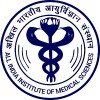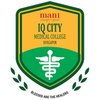Junior Resident Doctor
30+ Junior Resident Doctor Interview Questions and Answers
Asked in KBN COLLEGE OF PG DEPARTMENT

Q. What pathology is related to viral infections, especially SARS-CoV-2 (COVID-19)?
SARS-CoV-2 is a viral infection causing COVID-19, primarily affecting the respiratory system.
SARS-CoV-2 is a novel coronavirus responsible for the COVID-19 pandemic.
It primarily spreads through respiratory droplets when an infected person coughs or sneezes.
The virus enters the body through the nose, mouth, or eyes and attaches to ACE2 receptors in the respiratory tract.
It can cause a range of symptoms from mild to severe, including fever, cough, shortness of breath, fatigue, ...read more
Asked in KBN COLLEGE OF PG DEPARTMENT

Q. Which cancer is most prevalent among women, including its pathology, symptoms, and treatment?
Breast cancer is the most common cancer among women worldwide.
Pathology: Abnormal cells grow uncontrollably in the breast tissue.
Symptoms: Lump in the breast, changes in breast shape, size or skin texture, nipple discharge or pain.
Treatment: Surgery, radiation therapy, chemotherapy, hormone therapy, targeted therapy.
Example: Angelina Jolie underwent a preventive double mastectomy due to her high risk of developing breast cancer.
Junior Resident Doctor Interview Questions and Answers for Freshers

Asked in Safdarjung Hospital

Q. What is the treatment for shortness of breath?
The treatment of shortness of breath depends on the underlying cause.
Identify and treat the underlying cause of shortness of breath
Administer supplemental oxygen if necessary
Prescribe medications to relieve symptoms or treat the underlying condition
Recommend lifestyle changes such as quitting smoking or losing weight
Refer to a specialist for further evaluation and management if needed

Asked in Safdarjung Hospital

Q. Is dexamethasone useful for treating COVID patients?
Yes, dexamethasone is useful for treating covid patients.
Dexamethasone is a corticosteroid medication that has been shown to reduce mortality in severe cases of COVID-19.
It is particularly effective in patients who require supplemental oxygen or mechanical ventilation.
Several clinical trials, including the RECOVERY trial, have demonstrated the benefits of dexamethasone in reducing inflammation and improving outcomes in COVID-19 patients.
However, it is not recommended for mild...read more

Q. How do you use important instruments for patient incubation in the ICU?
The important instrument for incubation of patients in ICU is a mechanical ventilator.
A mechanical ventilator is used to provide artificial respiration to patients who are unable to breathe on their own.
It delivers a mixture of oxygen and air to the patient's lungs.
The ventilator can be adjusted to control the rate and depth of breaths, as well as the amount of oxygen delivered.
It is important to monitor the patient's vital signs and adjust the ventilator settings accordingly...read more

Asked in AIIMS

Q. Which TB drugs are hepatotoxic and nephrotoxic?
I don't have the available data.
Junior Resident Doctor Jobs



Asked in Safdarjung Hospital

Q. What is the difference between a pandemic and an epidemic?
A pandemic is a global outbreak of a disease, while an endemic refers to the constant presence of a disease in a specific population or region.
Pandemic: A pandemic is an outbreak of a disease that occurs over a wide geographic area and affects an exceptionally high proportion of the population.
Endemic: An endemic refers to the constant presence and/or usual prevalence of a disease or infectious agent in a population within a specific geographic area.
Pandemics are usually caus...read more
Asked in KBN COLLEGE OF PG DEPARTMENT

Q. What is Asthma causes types & treatment
Asthma is a chronic respiratory condition characterized by inflammation and narrowing of the airways.
Causes: Allergens, respiratory infections, exercise, cold air, stress
Types: Allergic asthma, non-allergic asthma, exercise-induced asthma, occupational asthma
Treatment: Inhalers (bronchodilators, corticosteroids), avoiding triggers, allergy shots, lifestyle changes
Example: A person with allergic asthma may experience symptoms when exposed to pollen or pet dander.
Share interview questions and help millions of jobseekers 🌟


Q. How do you determine the ulceration process in the stomach?
To diagnose the process of stomach ulcer, various methods can be used such as endoscopy, biopsy, imaging tests, and blood tests.
Endoscopy: A thin, flexible tube with a camera is inserted through the mouth to examine the stomach lining.
Biopsy: A small tissue sample is taken during endoscopy to check for the presence of H. pylori bacteria or signs of cancer.
Imaging tests: X-rays, CT scans, or ultrasound may be used to visualize the stomach and identify ulcers.
Blood tests: These...read more

Q. What are the symptoms and treatment options for ascites patients?
Ascites is the accumulation of fluid in the abdominal cavity. Symptoms include abdominal swelling, weight gain, and shortness of breath.
Abdominal swelling is the most common symptom of ascites.
Other symptoms may include weight gain, bloating, and discomfort.
Patients may experience shortness of breath due to the pressure of the fluid on the diaphragm.
Treatment options include diuretics to reduce fluid buildup, dietary changes, and in severe cases, paracentesis or surgery.

Q. Management of hypertension and Hypotension
Management of hypertension and hypotension involves lifestyle modifications, medication, and regular monitoring.
For hypertension, lifestyle modifications include a healthy diet, regular exercise, weight management, and stress reduction.
Medication options for hypertension include diuretics, beta-blockers, ACE inhibitors, calcium channel blockers, and angiotensin receptor blockers.
Regular monitoring of blood pressure is essential to assess the effectiveness of treatment and mak...read more

Asked in IQ City Medical College

Q. Which material would you use to suture a scalp injury?
Surgical sutures made of non-absorbable material like nylon or silk are used to stitch an injury in the scalp.
Non-absorbable sutures like nylon or silk are preferred
Absorbable sutures are not used as scalp wounds take longer to heal
Sutures should be placed at a distance of 3-5mm from the wound edge
The number of sutures required depends on the size and location of the wound

Asked in Safdarjung Hospital

Q. What are the most common symptoms of COVID patients?
The most common symptom of COVID-19 patients is fever.
Fever is the primary symptom observed in most COVID-19 patients.
It is usually accompanied by other symptoms like cough, fatigue, and shortness of breath.
Fever is often one of the initial signs of COVID-19 infection.
The temperature may vary, but a persistent fever is commonly seen in patients.
Some patients may experience high-grade fever, while others may have a low-grade fever.

Q. What are medicine and surgical emergencies?
Medicine and surgical emergencies are urgent medical conditions that require immediate attention and treatment.
Medicine emergencies include heart attack, stroke, severe allergic reactions, diabetic emergencies, and drug overdose.
Surgical emergencies include appendicitis, bowel obstruction, traumatic injuries, and severe bleeding.
Prompt diagnosis and treatment are crucial in both types of emergencies to prevent complications and save lives.
Emergency medical services (EMS) shou...read more
Asked in KBN COLLEGE OF PG DEPARTMENT

Q. Types of seizures And treatment
Types of seizures and their treatment options.
There are two main types of seizures: focal and generalized.
Focal seizures occur in one area of the brain and can cause twitching or numbness.
Generalized seizures affect the whole brain and can cause loss of consciousness.
Treatment options include medication, surgery, and lifestyle changes.
Medications like anticonvulsants can help control seizures.
Surgery may be an option for those with focal seizures that do not respond to medica...read more

Q. When is a blood transfusion necessary?
Blood transfusion is done when a person's blood volume or red blood cell count is low, or when there is a need for specific blood components.
To replace blood loss due to injury or surgery
To treat anemia caused by various conditions such as iron deficiency, chronic kidney disease, or cancer
To provide specific blood components like platelets or plasma to patients with clotting disorders or liver disease
To support patients with bone marrow failure or immune system disorders
To tr...read more

Asked in AIIMS

Q. What are the reasons for cardiac arrest in youngsters?
Possible reasons for cardiac arrest in youngsters include congenital heart defects, drug abuse, sudden impact or trauma, and certain medical conditions.
Congenital heart defects
Drug abuse
Sudden impact or trauma
Certain medical conditions

Asked in Ambuja Cements

Q. If you were made PM for a day, what would you do?
As PM for a day, I would focus on healthcare reforms, education, and mental health awareness to improve public welfare.
Implement a nationwide health insurance scheme to ensure everyone has access to medical care.
Increase funding for mental health programs to address the rising cases of mental illness.
Launch a campaign to promote preventive healthcare, such as regular check-ups and vaccinations.
Enhance medical infrastructure in rural areas to provide better access to healthcar...read more

Asked in Ambuja Cements

Q. What steps can you take to improve your work performance?
Main apne kaam ko behtar karne ke liye samarpan, seekhne ki ichha, aur teamwork par dhyan deti hoon.
Regularly update my medical knowledge through journals and online courses.
Participate in workshops and seminars to enhance practical skills.
Seek feedback from seniors and peers to identify areas for improvement.
Engage in team discussions to learn from others' experiences.
Practice empathy and communication skills to improve patient interactions.
Asked in KBN COLLEGE OF PG DEPARTMENT

Q. What are the effects of endometriosis?
Endometriosis is a condition where the tissue that normally lines the inside of the uterus grows outside of it.
Endometrial tissue grows outside of the uterus
Can cause pain and infertility
May form cysts or scar tissue
Can be treated with medication or surgery
Asked in KBN COLLEGE OF PG DEPARTMENT

Q. Stages of Gynaecological cancers
Stages of gynaecological cancers refer to the extent of cancer spread in the body.
Stage 0: Cancer is in situ, meaning it has not spread beyond the original site.
Stage I: Cancer is localized to the organ of origin.
Stage II: Cancer has spread to nearby tissues or organs.
Stage III: Cancer has spread to nearby lymph nodes and/or organs.
Stage IV: Cancer has spread to distant organs or tissues.
Staging helps determine the treatment plan and prognosis.
Different types of gynaecologica...read more

Asked in Ambuja Cements

Q. Do you always complete your work on time?
I prioritize my tasks and manage my time effectively to ensure I complete my work on time consistently.
I use a planner to schedule my daily tasks, which helps me stay organized.
For example, during my internship, I always completed patient assessments before rounds.
I set reminders for important deadlines, ensuring I never miss them.
In high-pressure situations, I focus on critical tasks first, like patient care.
I regularly review my progress to adjust my schedule as needed.

Asked in Deen Dayal Upadhyay Hospital

Q. What is Acute suppurative otitis media?
Acute suppurative otitis media is a bacterial infection of the middle ear causing inflammation and pus accumulation.
Caused by bacterial infection in the middle ear
Symptoms include ear pain, fever, hearing loss, and pus discharge
Treatment involves antibiotics and possibly ear tube placement

Q. Which department are you interested in?
I am particularly interested in the Pediatrics department, as I am passionate about child health and development.
Pediatrics allows me to work with children, addressing their unique health needs.
I am drawn to the opportunity to make a significant impact on a child's growth and development.
I admire the preventive care aspect of Pediatrics, focusing on vaccinations and health education.
I have volunteered at children's hospitals, which solidified my interest in this field.

Asked in Safdarjung Hospital

Q. What are the symptoms of corona?
Symptoms of corona include fever, cough, fatigue, loss of taste or smell, and difficulty breathing.
Fever
Dry cough
Fatigue
Loss of taste or smell
Difficulty breathing

Asked in Ambuja Cements

Q. What are your future career plans?
In the future, I aspire to specialize in a specific field of medicine, contribute to research, and mentor aspiring doctors.
Pursue a specialization in fields like cardiology or pediatrics to deepen my medical expertise.
Engage in research projects to contribute to advancements in medical science, such as studying new treatment methods.
Participate in community health initiatives to improve public health awareness and access to healthcare.
Mentor medical students and junior reside...read more

Q. How do you manage hospital-acquired pneumonia?
Management of hospital-acquired pneumonia involves prompt diagnosis, appropriate antibiotic therapy, and supportive care.
Obtain cultures and sensitivity testing before initiating antibiotic therapy
Choose antibiotics based on local resistance patterns and patient factors
Consider de-escalation of antibiotics once culture results are available
Provide supportive care such as oxygen therapy, bronchodilators, and chest physiotherapy
Implement infection control measures to prevent fu...read more
Asked in M-Insure

Q. What is the differential diagnosis and treatment for white discharge?
White discharge can indicate various conditions; diagnosis and treatment depend on the underlying cause.
1. Physiological discharge: Normal vaginal discharge, often clear or white, varies with menstrual cycle.
2. Bacterial vaginosis: Characterized by a fishy odor and grayish-white discharge; treated with antibiotics like metronidazole.
3. Yeast infection: Thick, white, cottage cheese-like discharge; treated with antifungal medications such as fluconazole.
4. Sexually transmitted ...read more

Q. How do you manage diabetic ketoacidosis?
Management of diabetic ketoacidosis involves fluid and electrolyte replacement, insulin therapy, and treatment of underlying cause.
Assess severity and initiate fluid resuscitation with normal saline
Administer insulin therapy to lower blood glucose levels
Correct electrolyte imbalances, especially potassium
Treat underlying cause, such as infection or missed insulin doses
Monitor blood glucose, electrolytes, and acid-base status closely
Consider ICU admission for severe cases

Asked in Ambuja Cements

Q. What are you interested in?
I have a keen interest in internal medicine, particularly in patient care and diagnostic challenges.
I enjoy working with patients to understand their medical history and symptoms.
I am fascinated by the diagnostic process, especially in complex cases.
I have a passion for continuous learning, keeping up with the latest medical research.
I find joy in collaborating with a multidisciplinary team to provide comprehensive care.
Interview Questions of Similar Designations
Interview Experiences of Popular Companies






Calculate your in-hand salary
Confused about how your in-hand salary is calculated? Enter your annual salary (CTC) and get your in-hand salary


Reviews
Interviews
Salaries
Users










